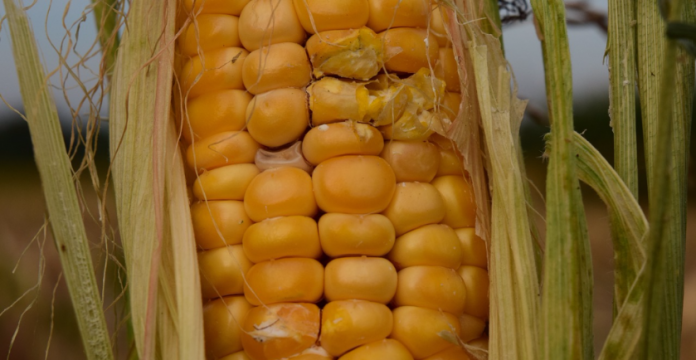
Researchers recently found that a type of corn genetically modified (GMO) to be tolerant to the herbicide glyphosate has significant molecular differences from conventional corn. The findings of the research team, led by Dr. Michael Antoniou at King’s College London, were published in the scientific journal Nature.
The researchers assessed whether the GMO corn, known as NK603, and traditional corn are equivalent on a molecular basis. They found that “a total of 117 proteins and 91 metabolites have been altered in maize by the genetic transformation process.” They concluded NK603 corn is “not substantially equivalent” to conventional corn. In other words, GMO corn is not the same on a molecular basis as non-GMO corn.
“Our study clearly shows that the GM transformation process results in profound compositional differences in NK603, demonstrating that this GMO corn is not substantially equivalent to its non-GMO counterpart,” Dr. Antoniou stated. “Our results call for a more thorough evaluation of the safety of NK603 corn consumption on a long-term basis.”
Monsanto, the maker of GMO crops, has always maintained that GMO corn is equivalent to non-GMO corn. The company stated in a safety summary of NK603 corn that it is equivalent to conventional corn based on studies it has conducted. “The results of all these studies demonstrate that corn event NK603 is comparable to traditional corn with respect to food, feed and environmental safety.” Monsanto claims on its website that GMO “traits have been tested more than any other crops-with no credible evidence of harm to humans or animals.”
Governmental regulatory agencies use the information provided by companies like Monsanto to assess the safety of GMO crops. The European Food Safety Authority (EFSA) concluded that NK603 corn is “compositionally equivalent to conventional maize, except for the presence of the CP4 EPSPS proteins.” Those are the proteins that make the corn tolerant to glyphosate.
Read more about side effects of GMO corn and soy
Most of the corn in North America is GMO. The acreage of GMO corn in the U.S. in 2016 was 89 percent, up from 10 percent in 1997, according to the U.S. Department of Agriculture. Although the Canadian government does not track how much GMO corn is grown in Canada, the Canadian Biotechnology Action Network (CBAN) estimates that in 2015 over 80 percent of grain corn in the country was GMO, with a small percentage of sweet corn also GMO. Neither the U.S. nor Canada require GMO foods to be labeled.
In the absence of GMO labeling, consumers can buy certified organic or Non-GMO Project verified food.




